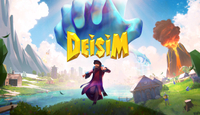Deisim for Oculus Quest filled the void in my heart that Black & White left
It's a god game for the new age mind.
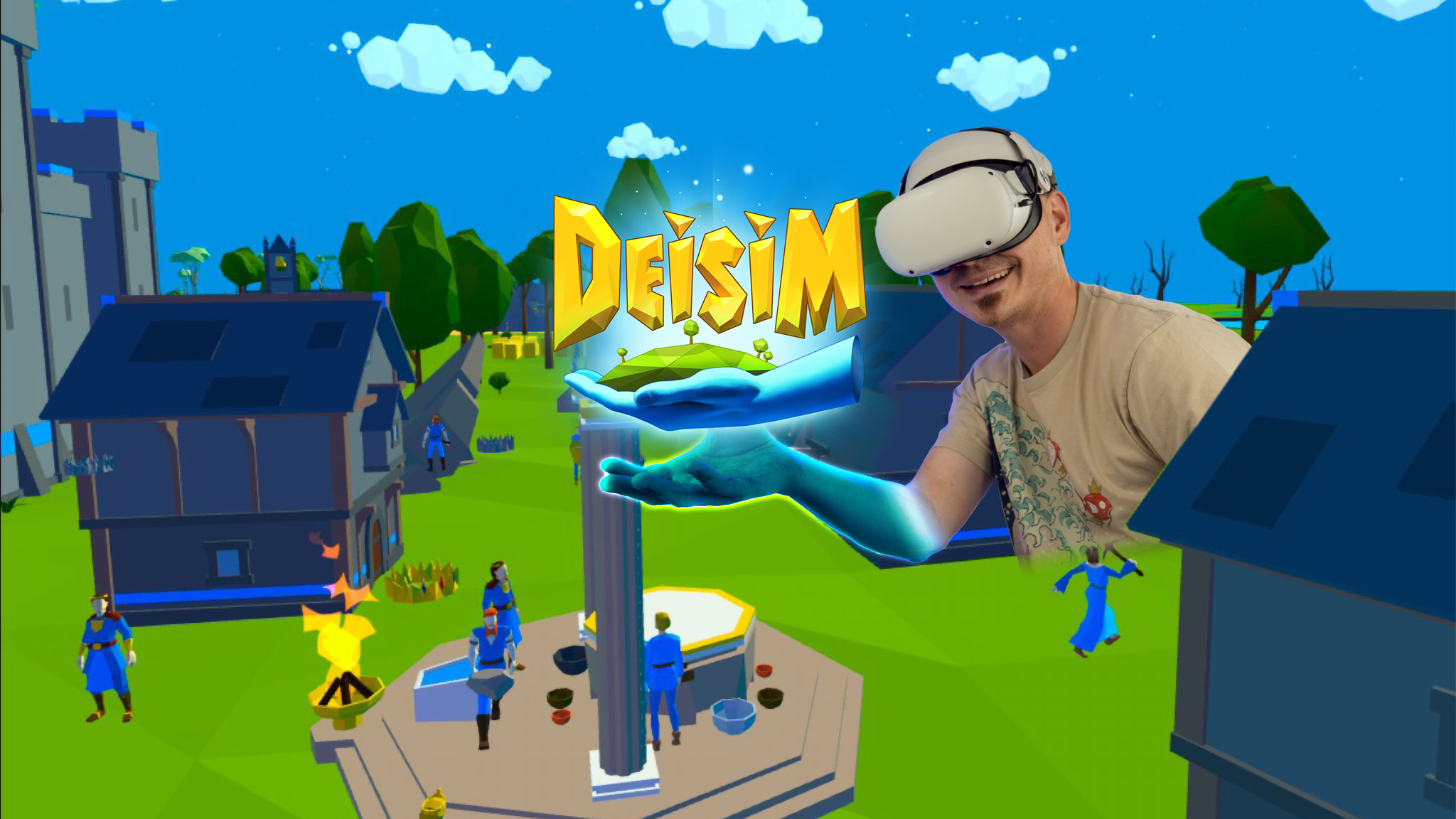
I remember when the original Black & White came out. I was in high school at the time and had spent many summers playing games like Starcraft and Civilization. Just as I thought I was growing out of interest with the genre, Peter Molyneux's masterpiece came along and reinvigorated my love with the concept.
While Deisim doesn't feature giant apes or lions that you can raise to do your work on the planet, it does give you something Black & White never could: the actual feeling of being an all-powerful god.
See, while Black & White (and games like it) tend to rely on garnering influence or raising an Earthly appointee to do your bidding, Deisim gives you complete power over your creation from the get-go. The game recently graduated from Meta's App Lab — where it has held the honor of being called one of the best Quest 2 games for some time now — to the full Oculus Quest 2 store.
Simple roots
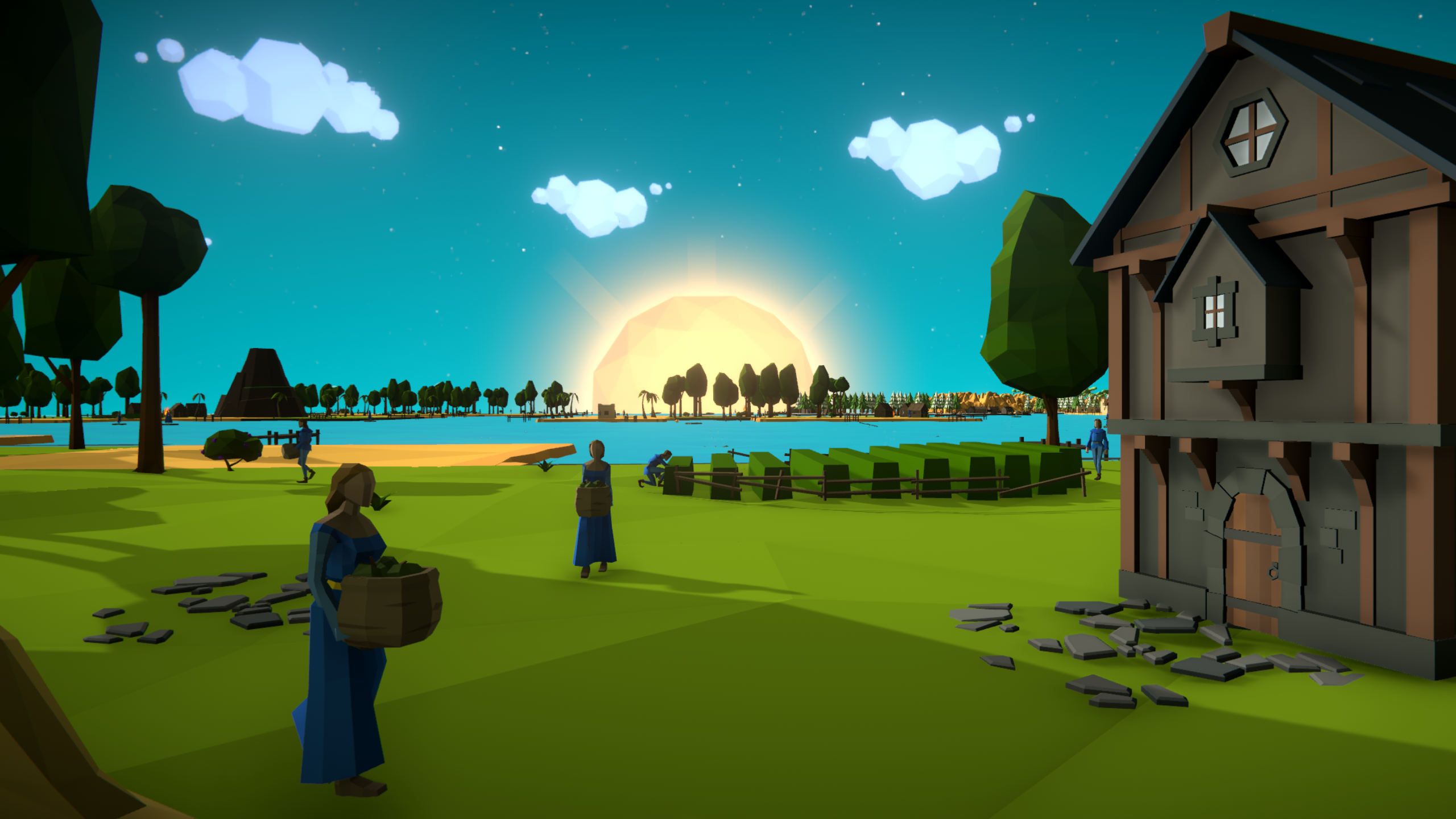
It's a game that is best experienced when you want to relax and enjoy the slow life. In a way, it's not unlike taking care of bonsai.
Deisim starts out deceptively simplistic and doesn't seem very deep at first. Still, patience and time will reveal several layers of complexity that have been added over the past few years since the game was in Early Access on Steam.
Deisim began on Steam years ago as a sort of Zen-like god game that let you build a world and watch the populous grow along with it. During its development, we've seen the addition of modern and futuristic ages, kingdoms, army battles, and even UFOs. It's a game that is best experienced when you want to relax and enjoy the slow life. In a way, it's not unlike taking care of bonsai.
The visuals aren't designed to blow your mind — or even tax the Quest 2 itself, really — but that's OK because they're charming in their own way. The world is built with simple polygonal models and bright colors, with each biome having a clear color scheme.
Beyond simple colors, each biome will also attract a certain type of civilization. Icy plains house Nordic cultures, while cherry blossom forests have cultures of clear Japanese influence. Each culture also has its own music style, so you can hang out in your favorite local as you watch your world develop.
Be an expert in 5 minutes
Get the latest news from Android Central, your trusted companion in the world of Android
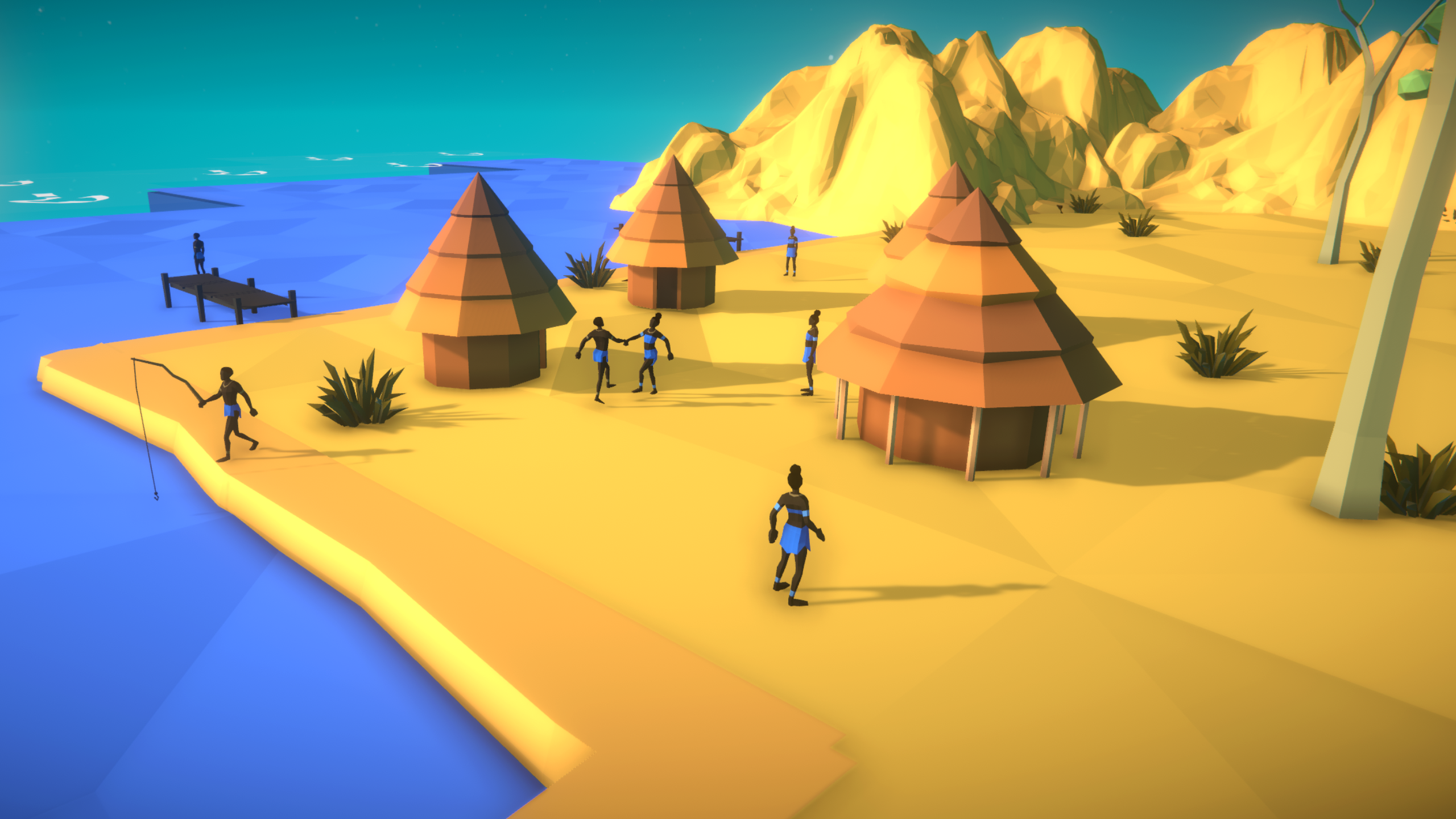
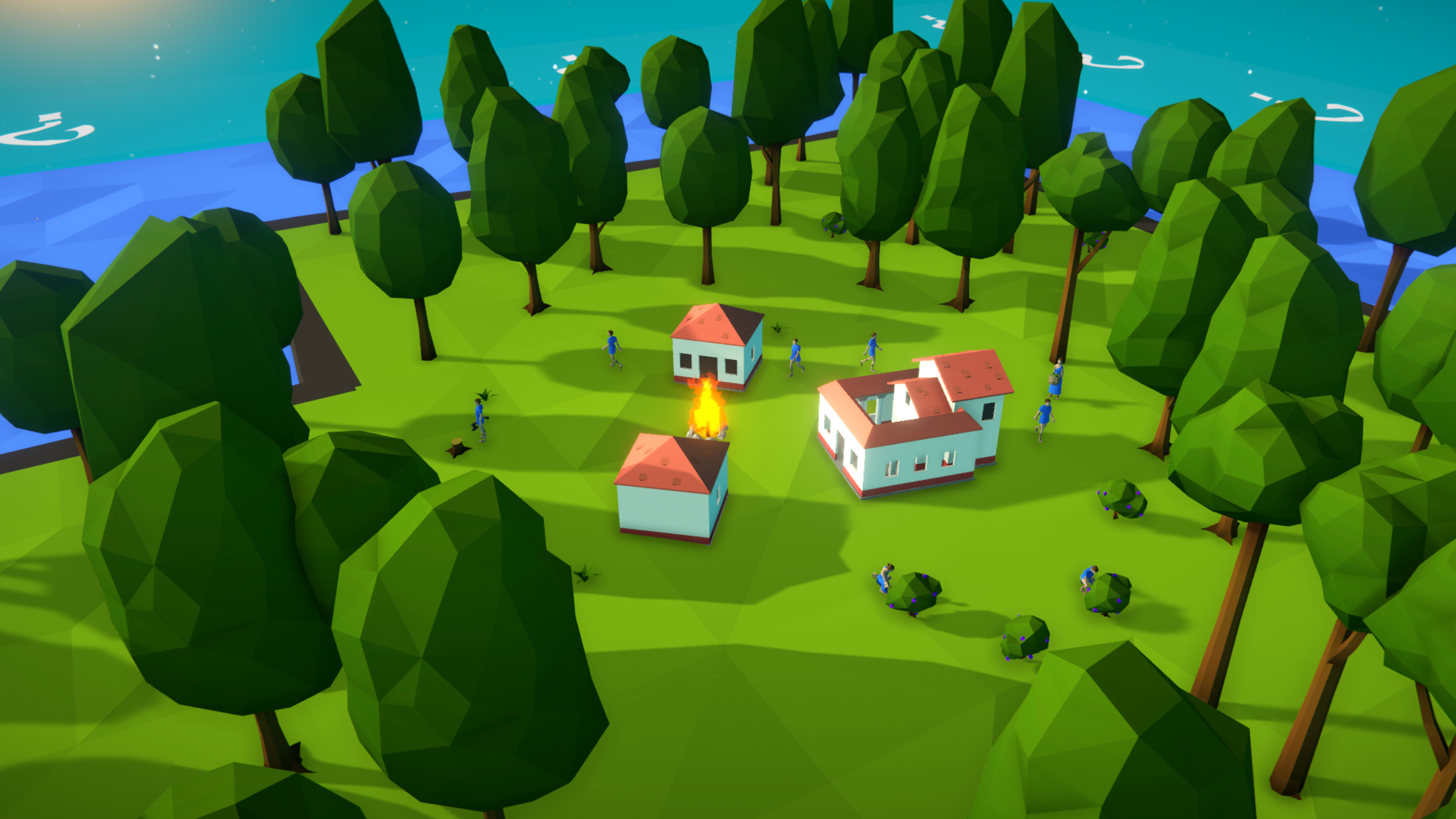
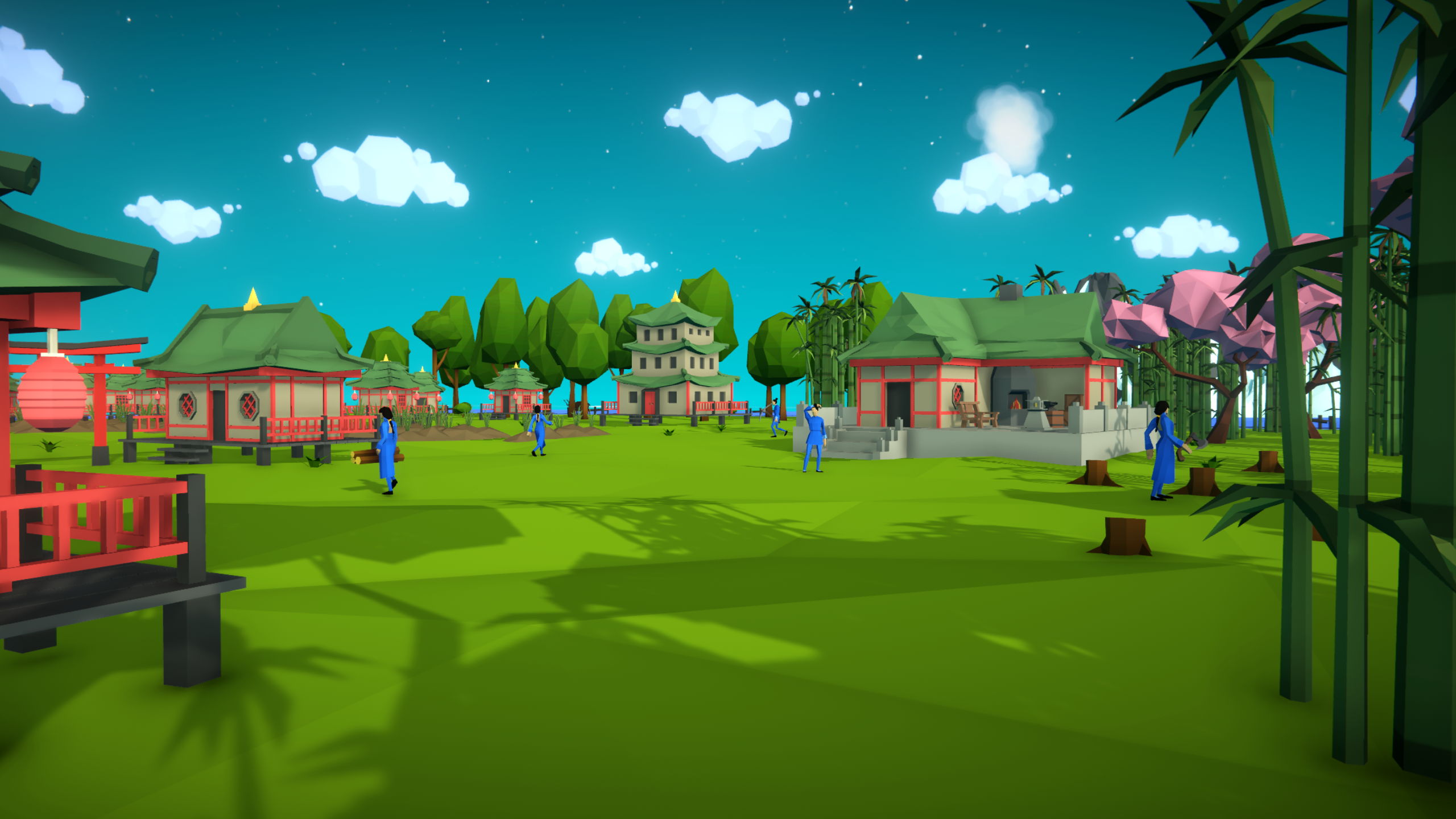
Your inventory of abilities grows as your world and its civilizations develop.
Controls are simple enough, and one main menu houses all the actions and miracles you can perform in the game. Your inventory of abilities grows as your world and its civilizations develop, eventually culminating in a collection of world tiles, miracles, plagues, and even the ability to spawn individual hero units like doctors or priests.
While I didn't care for the locomotion in Deisim at first, I quickly realized that pressing and holding the triggers on the controller enabled me to push and pull the entire world around, similar to how you might imagine yourself standing at a globe and spinning it to find the next place. If you prefer, you can use teleport or smooth movement instead.
Deisim lets you get way down in with your people or more effectively manage the whole world from a zoomed-out perspective. Again, pressing and holding the triggers — followed by a typical pinch-to-zoom style movement with the controllers — will scale the world to your liking.
While some of this was just trial and error, I needed to go through — how are you going to know your preferences if you don't try something? — I felt like some of these actions could have just been explained a little better.
Diving deeper
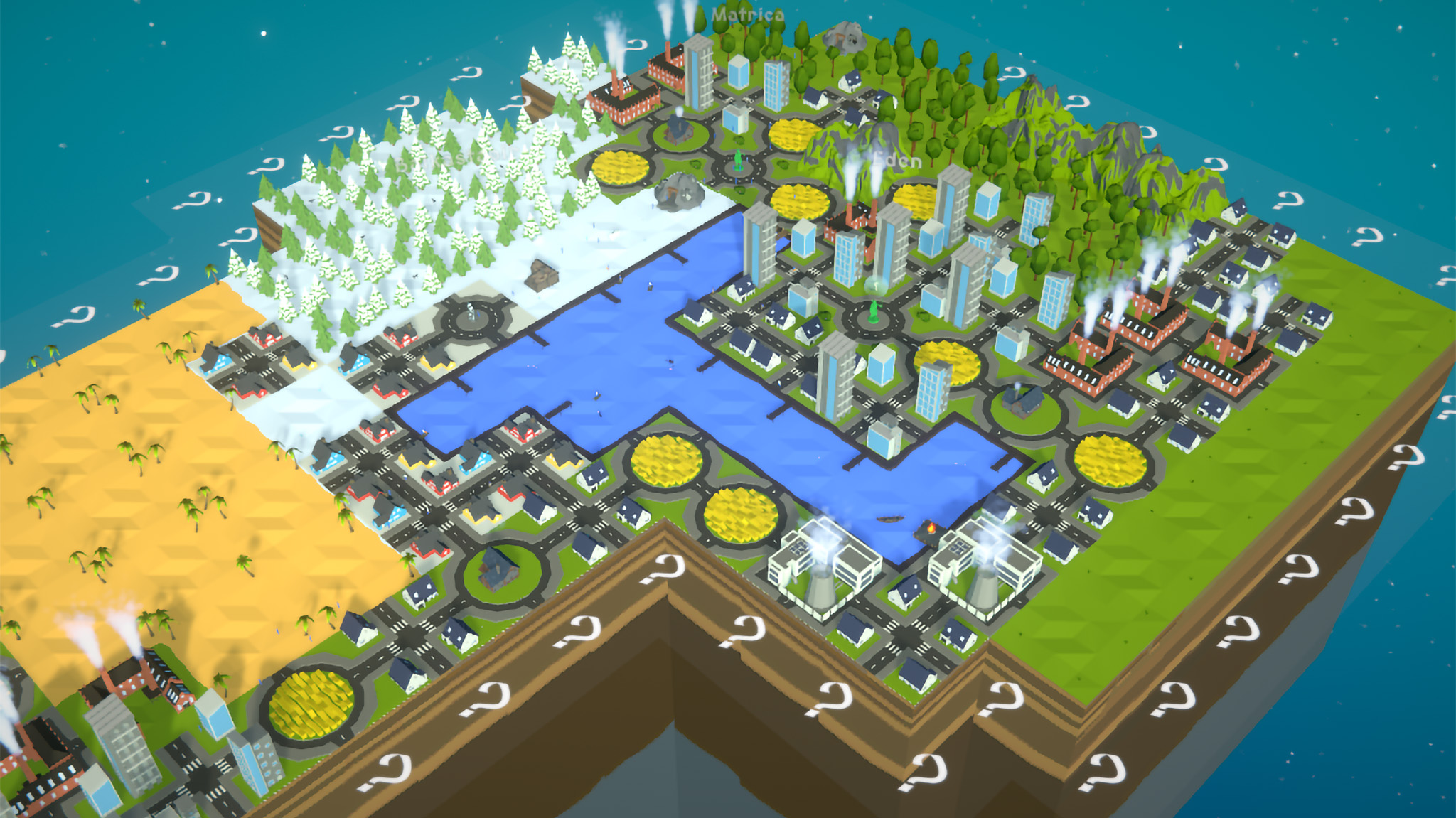
I love that Deisim gives you the feeling of being a powerful deity yet keeps human control confined to its own automated means.
I love that Deisim gives you the feeling of being a powerful deity yet keeps human control confined to its own automated means. It's not SimCity — you're not ordering the construction of buildings or zones — and it's not Populism. Rather, Deisim is both something in-between the two and outside of those descriptors, too.
First off, you quite literally create the world as you go, fashioning the land by using a collection of simple tile-based tools that you'll drop onto any empty square. You can even place tiles in patches of six if you want a more sprawling forest or larger body of water. Be careful, though, as you cannot easily undo the work you've done.
As you expand your world, kingdoms crop up in each biome and flourish — or die out — as you see fit. Is one kingdom getting unruly, spawning heretics and attacking neighboring kingdoms as its rulers get more paranoid and angry? Rain fire down from heaven or send a plague of locusts to teach them a lesson.
But, before you get to that point, you'll need to inspire kingdoms to expand, regrow forests that have been felled and drained of their precious resources, fashion mines hewn of rock, and even spawn animals in a way only a god can.
The humans in Deisim, like real humans, are surprisingly complex. They can seem simple on the outside — walking about, doing their daily tasks and jobs — but each features a different personality and culture that can influence those around it.
Once you've reached the kingdom age, you'll find that denizens of your world might get restless and need to expand. Since this isn't an RTS and you aren't commanding actual humans, you'll be interacting indirectly with them — although, in addition to miracles and disasters, you can also pick up individual humans or their dwellings and Hulk smash, if you so choose.
But Deisim is best experienced over long periods of time, pruning a little here, fertilizing a little there, and experiencing the wonders of AI and a virtual world in only a way that VR can deliver. It's a god game for the new age, not stressful and filled with statistics and overly-intricate strategy.
$15 might be a bit steep for most folks based on the pace of the game, but if you can get it on sale or just enjoy toiling in a virtual world as you would a garden, Deisim is a unique gem that should be experienced by Quest 2 players.

